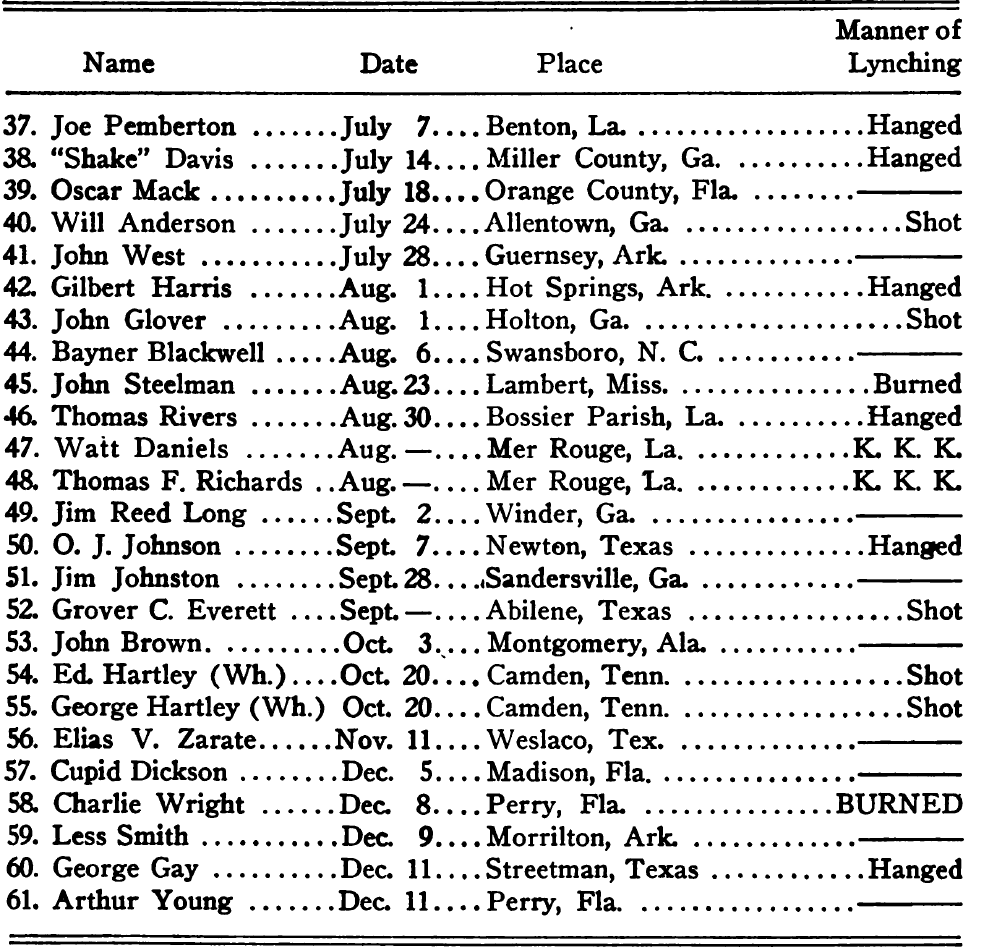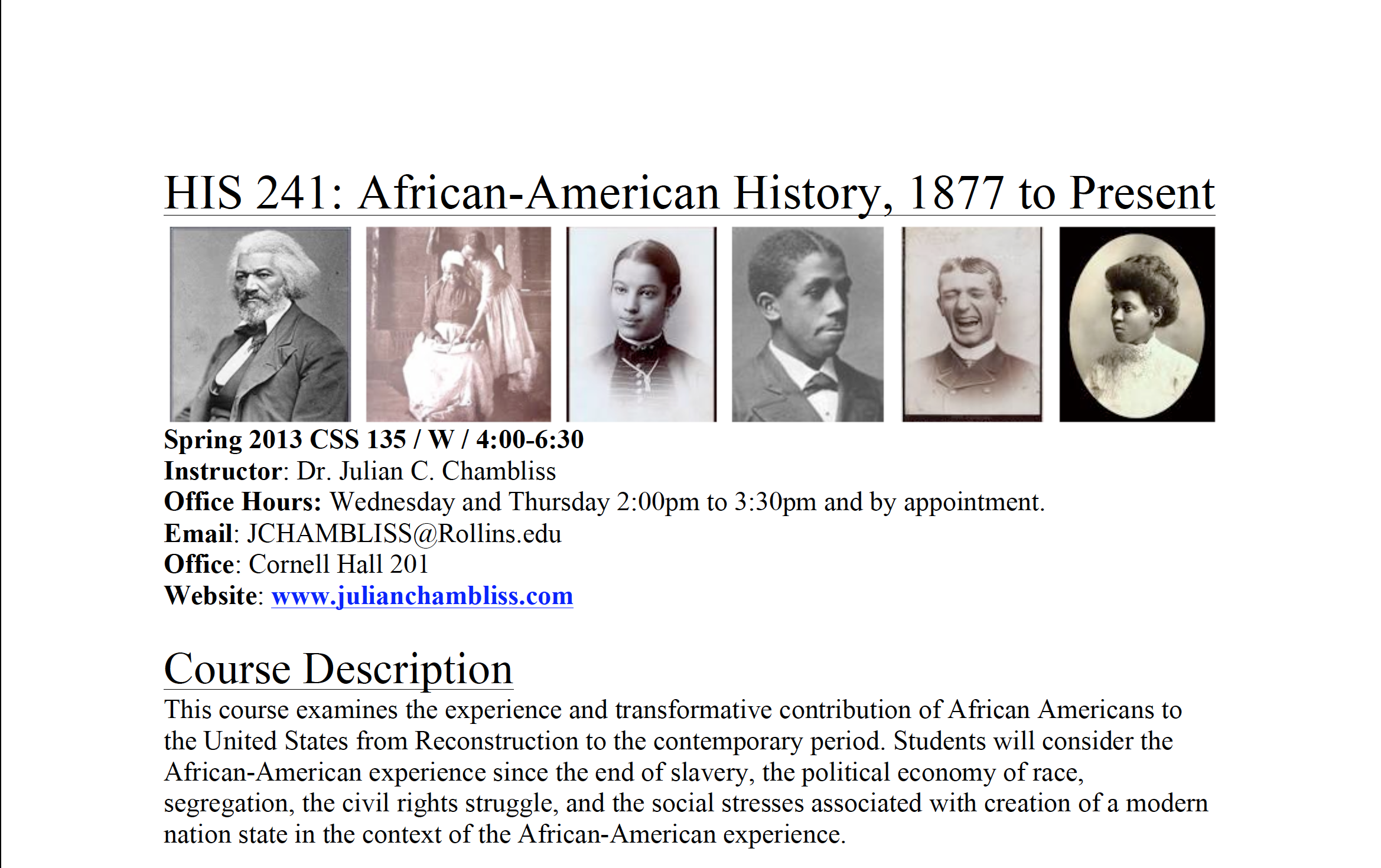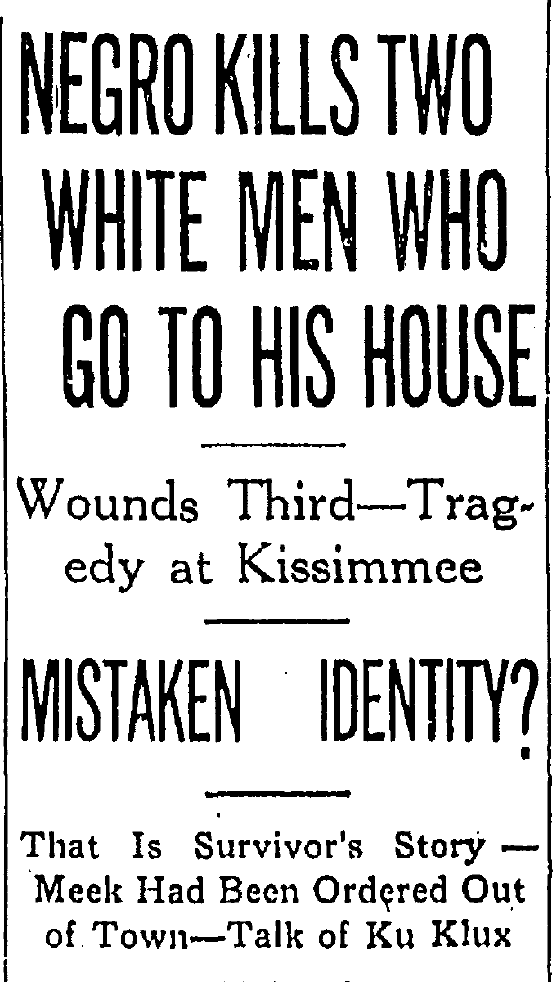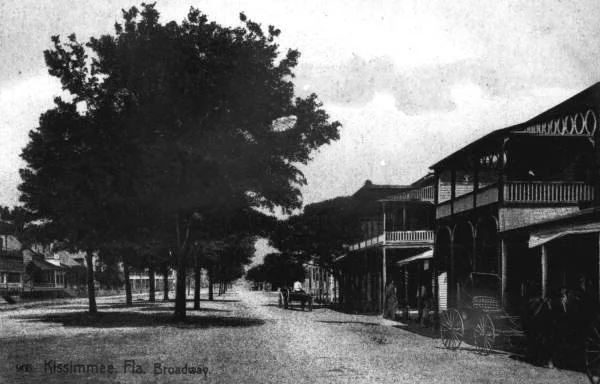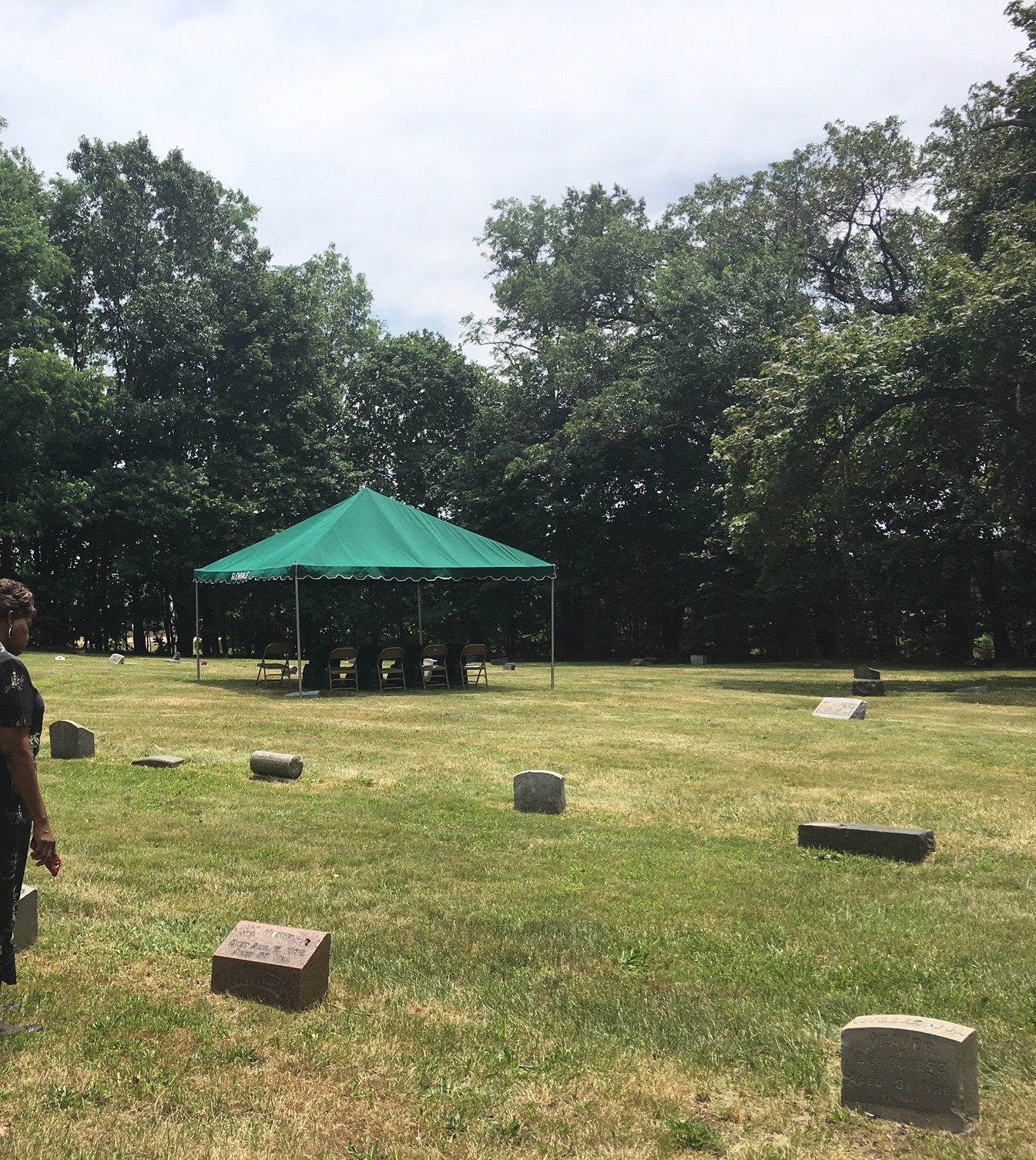The Death of Oscar Mack
In 2013 I conducted a community-based research project with undergraduate students in my African-American History Since 1877 course. This critical making digital history project investigated the reported lynching of an African-American World War I veteran named Oscar Mack, in Kissimmee, Florida on July 16, 1922. Seeking to highlight the black political culture historian Paul Ortiz has described as resisting oppression through institutions and actions, this course sought to shed light on this forgotten event. Working closely with Curtis Michelson a former member of Democracy Forum, a local civil rights community group that had worked to uncover the history of anti-black violence in Ocoee, Florida student researchers discovered new details about the threat that led to lynching event. Seeking to place this incident within the broader context of anti-black violence in the United States, their research identified how an unnamed group threaten Mack life for winning a public contract they believed should have been given to a white man. Despite their efforts, many questions were left unanswered.
I followed-up their effort with a series of sessions collecting oral histories in conjunction with the Samuel Proctor Oral History Program (SPOHP) from 2015-2017. The oral histories uncovered startling new information about Mack's escape from lynching and the new identity he created to escape reprisals. The story continues to evolve and I navigate what that evolution tells us about black and white narratives about race, memory, and trauma in the United States. I continued this work as a Julian Pleasant Fellow at the Samuel Proctor Oral History Program (SPOHP) at the University of Florida.
Legacies of Lynching: The Odyssey of Oscar Mack
As part of the From Segregation to Black Lives Matters: An African American Oral History Symposium sponsored by the Samuel Proctor Oral History Program at the University of Florida, I debuted a segment of the podcast project I’m envision as my next step for the Oscar Mack research. My presentation outlined the community-based experiential learning that served as the foundation for the Mack project.
March 2019 Research Presentation
The Narrative Challenge
One element of the Oscar Mack story that continues to be an ongoing challenge is to understanding the events in 1922 as they happened. This has emerged as parallel set of historical questions for me. In this process, I’m following a body of literature about lynching as a social control process. I’m particular intrigued by how the narrative of Mack’s death became a tool used by different people in the context of the controlling black and white actions. There are number of ways I’m attempting to track the story, but I’ve attempted to create graphic representation that captures the segment of the story for my own clarification. This infographic captures some of those elements.
Working with the Samuel Proctor Oral History Center at the University of Florida has given the Oscar Mack story new avenues to educate the public about racial violence. This trailer for a forthcoming documentary short for the classroom is a lasting legacy of the the work.
The story of Oscar Mack has reached the public through the efforts of Samuel Proctor Oral History program. On March 2023, The Orlando Sentinel ran a full-page story on Oscar Mack. You can see an interview with Cristobal Reyes, whose story documents Oscar Mack's story. I’m grateful to the Proctor Center for all their work in telling the full story.
A documentary about Oscar Mack by the Samuel Proctor Oral History Program brings together all the elements of research complied over the years.
